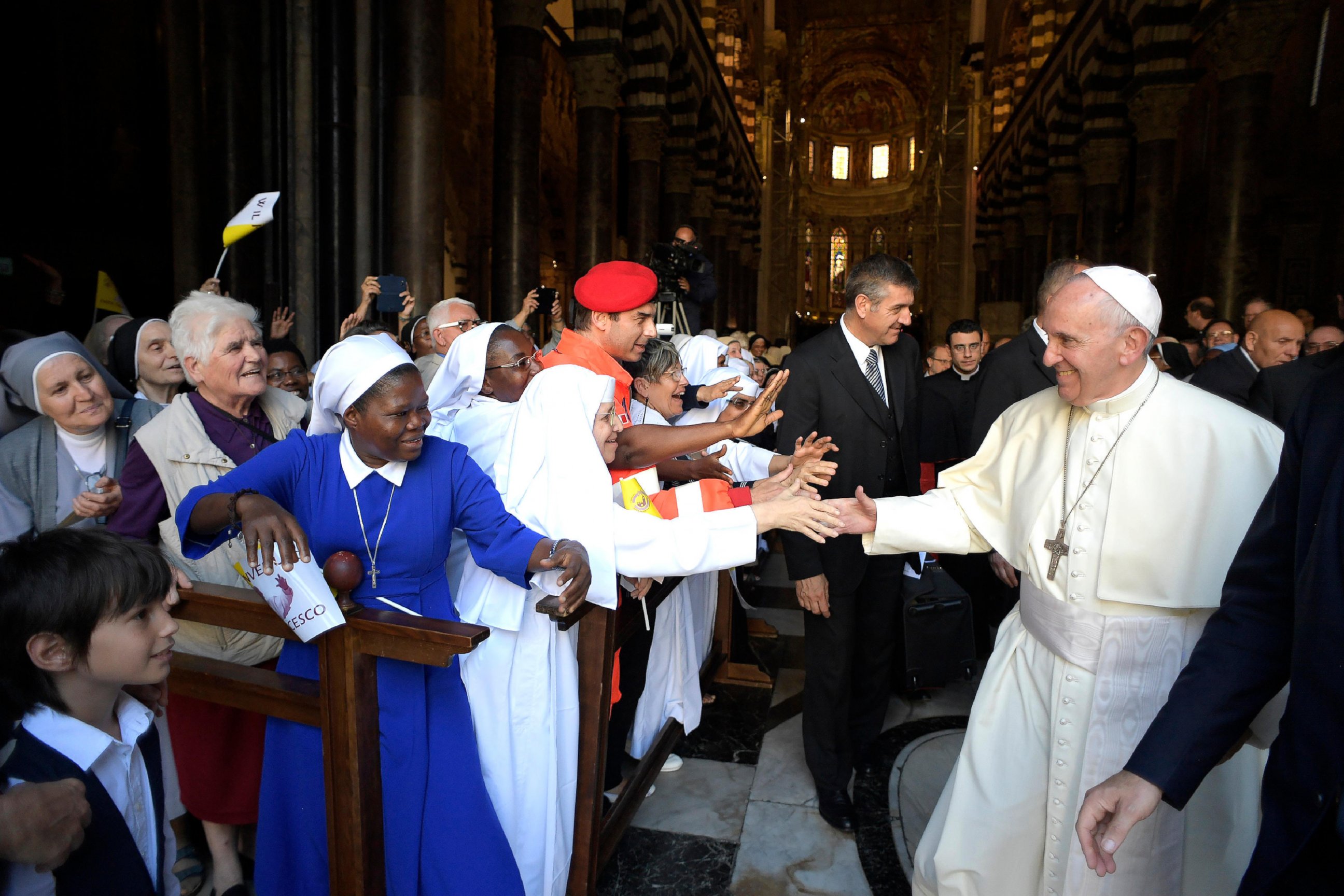Bishops, Priests and Religious urged to be flexible not rigid
On May 27, Pope Francis opened his nearly two-hour conversation with bishops, priests, religious and seminarians by leading them in a moment of silent prayer for the victims of the attack on Coptic Christians in Egypt, that killed 28.
Jun 02, 2017

By Elise Harris
On May 27, Pope Francis opened his nearly two-hour conversation with bishops, priests, religious and seminarians by leading them in a moment of silent prayer for the victims of the attack on Coptic Christians in Egypt, that killed 28.
After then reciting a Hail Mary for the deceased, the wounded and their families, the Pope took four questions on how to maintain a good spiritual life daily, how to keep the charism of an order fresh as time passes, how to foster priestly brotherhood and what to do about the current vocational crisis.
When it comes to having a good spiritual life, the Pope said two things are essential: a constant encounter with God through prayer, and being close to the people.
He noted that the world today is constantly “in a hurry,” and that it’s often difficult to take time to be with people and listen to their problems and concerns. But this doesn’t mean being inactive, he said, adding that “I am afraid of static priests.”
Priests who are obsessed with structure and organization are better “businessman” than pastors, he said, noting that they might pray and celebrate Mass, Jesus himself was “always a man on the street,” in the midst of his people and “open to the surprises of God.”
There’s a certain tension between these two extremes, he said, but urged consecrated people to “not be afraid of this tension,” because it’s a sign of “vitality” and movement.
He told priests to be flexible in their prayer, always seeking a true encounter with God, and urged them to allow themselves to “get worn out be the people,” and not to “defend your own tranquility,” since Jesus himself prioritized relationships with the people, yet always set aside time to be with his Father.
When it comes to fostering a stronger sense of brotherhood among priests, the Pope said that first of all this means letting go of “that image of the priest who knows everything,” and who doesn’t need the input of others.
Self-sufficiency does a lot of harm to a consecrated person, he said, and asked the priests and religious how many times during a meeting they stop paying attention to what a fellow brother or sister is saying, and let their minds go “into orbit” with other things.
Even if what the other person says isn’t necessarily of immediate interest, it’s important to pay attention, he said, explaining that each person “is a richness.” He told them to look for moments to pray together, go for lunch or play sports together, which all help to form stronger ties.
He also warned against “murmuring” and “jealousy,” noting that at times when he reviews information collected on possible candidates for bishops, “you find true calumny or opinions (that) devalue the priest.”
To speak poorly of a brother is to “betray” him, Francis said, and warned, as he often does, about the dangers of gossip and the importance of forgiveness.
When it comes to keeping charisms fresh, the Pope emphasized the importance of staying attached to the concrete realities of a diocese or project.
While a congregation might be “universal” in the sense that it has houses throughout the world, the “concreteness” of involvement in the diocese helps give the order “roots,” allowing it to remain and also to grow as they see different needs come up.
On the vocational crisis, Francis immediately pointed out the low birthrate in Europe, particularly Italy, saying the lack of vocations is also tied to the “demographic problem” that people don’t want to get married or have children.
“If there are no young men and women, there are no vocations,” he said, explaining that while this is not the only reason for the crisis, it’s something that must be kept in mind.
He also stressed the importance of looking critically at what is happening in the world and posing the question: “what is the Lord asking right now?”
“The vocational crisis is affecting the entire Church,” including the priesthood, religious life and even marriage, he said, noting that many young couples don’t want to commit themselves to the vocation of marriage, but instead prefer to cohabitate.
Given the widespread nature of the crisis, “it’s a time to ask ourselves, to ask the Lord, what must we do? What must we change?” he said, adding that “to face problems is necessary, (but) to learn from problems is obligatory.”
His words have a special resonance given that the next Synod of Bishops, set to take place in October 2018, will address the topic: “Young People, Faith and the Discernment of Vocation.”
Francis cautioned against the temptation of “conquest” when it comes to filling empty convents and seminaries, stressing that true vocational work “is hard, but we must do it.”
“It’s a challenge, but we must be creative,” he said, and emphasized the importance of bearing personal witness through the living of one’s own vocation, which “is key” to showing youth how rewarding a life offered for Christ and others can be.







Total Comments:0